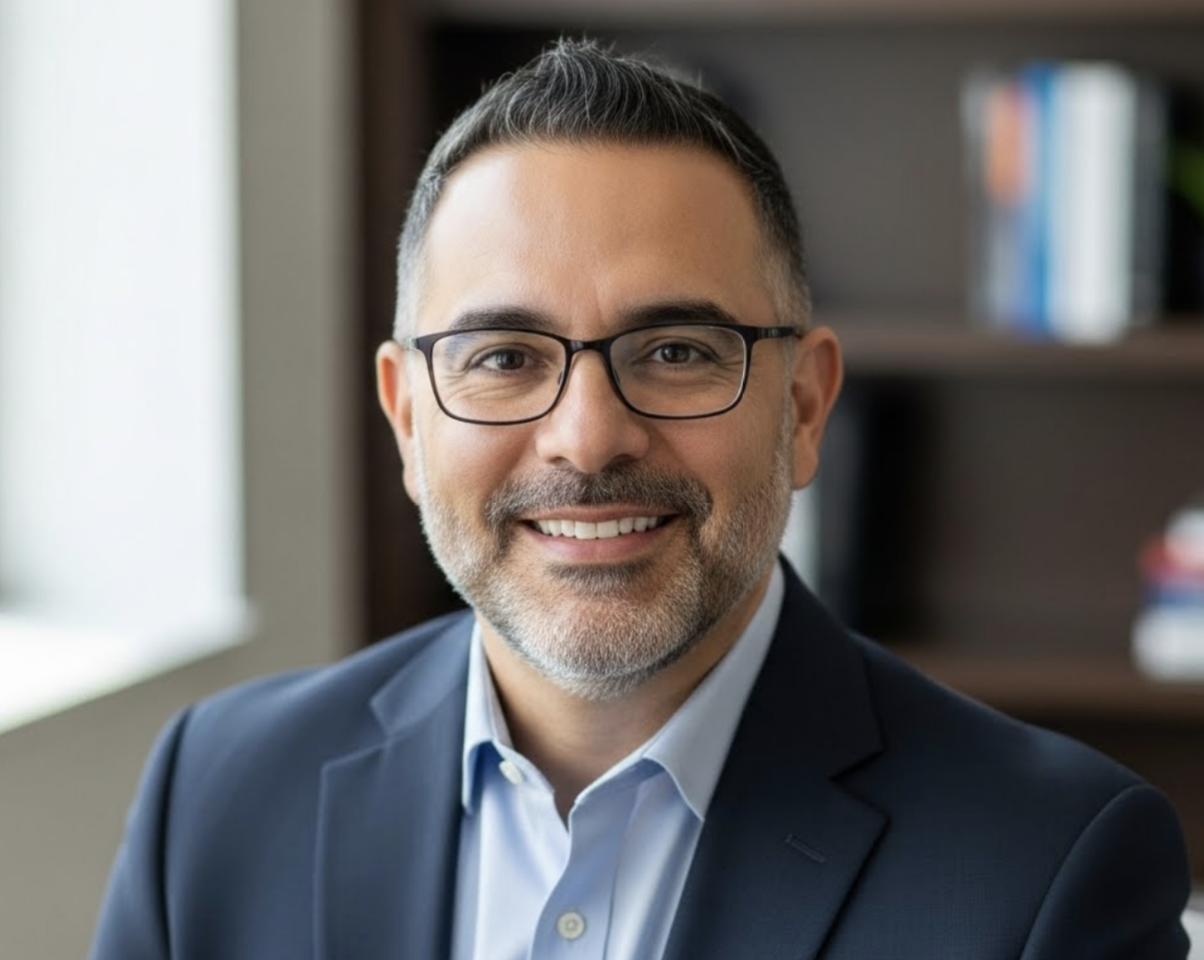Substance Abuse Counseling Associate Degrees
An associate degree in addiction counseling takes about two years and meets coursework requirements for certification or licensure in many states. In some states, it’s all you need for full independent practice (plus exams and supervised hours). In others, it qualifies you for entry-level or provisional credentials while you work toward a bachelor’s degree.
 There’s a good chance you’re here because you know the weight of addiction. Maybe you’ve carried it yourself, or watched someone you love struggle under it. That pain, that struggle—it’s what drives you to show up every day and provide a way forward for those clawing their way back from the edge.
There’s a good chance you’re here because you know the weight of addiction. Maybe you’ve carried it yourself, or watched someone you love struggle under it. That pain, that struggle—it’s what drives you to show up every day and provide a way forward for those clawing their way back from the edge.
This work isn’t glamorous. It’s raw and unrelenting. But it also has its share of beautiful moments marked by transformation, recovery, and mended relationships. You already know it’s not a career for everyone, and you’re more than ready for the challenge.
Your resilience, steadfastness, and compassion have made you the ideal person to enter addiction counseling. Now it’s time to get serious and get the education you need to put all those characteristics to work. For newcomers, an associate degree in addiction or substance abuse counseling makes the most sense and will get you where you need to be in about 2 years.
An Associate Degree in Addiction Counseling Meets Certification or Licensing Requirements in Many States
For many coming into the field, an addiction counseling associate degree is the obvious starting point. But it can be more than that.
It’s comprehensive, offering core courses and practical training in substance abuse counseling that you’ll need to enter the field, along with general coursework that will make you a better communicator and more well-rounded professional. In many states, an associate degree includes all the necessary coursework and practical field training you need for certification or licensure as a full-authority substance abuse counselor. However, you’ll still need to complete required exams and supervised experience hours.
As a rule, in states where an associate degree is all you need to become certified, schools design the programs specifically to meet those requirements.
For example, in New York, any accredited private university or school within the SUNY system offering associate programs in substance abuse counseling will include the 300-hour practicum and 50 didactic hours required to become a Credentialed Alcoholism and Substance Abuse Counselor (CASAC).
Associate programs are similarly tailored to requirements across the country, even when more course hours are required. That’s the case in Nebraska, where most associate degrees in substance abuse counseling satisfy the 270-hour classroom education requirement to become a Licensed Alcohol and Drug Counselor (LADC).
Due to the program’s time constraints, they aren’t able to include the embedded internship to complete the 300 hours of supervised practical training required to become certified in Nebraska. So instead, those 300 training hours are rolled into the post-associate supervised experience hours LADC candidates need to accumulate before becoming licensed.
In states where all you need is a short certificate course to meet the education requirement, an associate degree can still be a very wise choice. In states that offer equivalency credit, an associate degree may count as up to 1,000 hours of work experience—reducing the supervised pre-professional experience requirements by as much as half a year.
Take Missouri, for example. Earning an associate degree in addictions and substance abuse counseling not only meets the educational requirements for the Certified Alcohol & Drug Counselor (CADC) credential, but it also reduces the experience hours you’ll need for certification.
Applicants who meet the state’s education requirements with a basic certificate of completion must complete at least 4,000 hours of work experience to qualify for certification. But with an associate degree in a relevant field, it’s just 3,000 hours.
Even in states that require a minimum of a bachelor’s degree for certification or licensure, an associate degree can often be an ideal starting point in your educational journey and allow you to become credentialed. At the same time, you work toward a bachelor’s degree.
For example, the minimum educational requirement for the Nevada Certified Alcohol and Drug Abuse Counselor (CADC) credential is a bachelor’s degree. Still, you can be credentialed as a CADC-Intern (CADC-I) after earning 60 semester credits of education, which you can accomplish by earning an associate degree.
That means you can work as a CADC-I and get valuable experience in the field while you work toward your bachelor’s degree. Most AS and AA degrees are designed to transfer to bachelor’s programs, though it’s essential to check with individual schools for articulation agreements to ensure complete credit transfer. AAS degrees can be trickier when it comes to transferring credits.
States Where an Associate Degree Meets Full-Authority Credential Requirements
An associate degree meets the educational coursework requirements for full-authority independent addiction counselor credentials in these states. Keep in mind that additional requirements, such as supervised experience hours, passing examinations, and background checks, still apply—an associate degree satisfies the education component, but full certification involves multiple steps.
- Alaska – Chemical Dependency Counselor I/Chemical Dependency Counselor II
- Alabama – Certified Alcohol and Drug Counselor
- Arizona – Certified Addiction Counselor
- Colorado – Certified Addiction Counselor II
- Connecticut – Certified Alcohol and Drug Counselor
- Washington DC – Certified Addiction Counselor I / Certified Alcohol & Drug Counselor
- Delaware – Certified Alcohol & Drug Counselor
- Georgia – Certified Addiction Counselor I / Certified Alcohol & Drug Counselor
- Hawaii – Certified Substance Abuse Counselor
- Iowa – Certified Alcohol & Drug Counselor
- Idaho – Certified Alcohol-Drug Counselor
- Illinois – Certified Alcohol & Drug Counselor
- Indiana – Certified Alcoholism & Drug Abuse Counselor II
- Maine – Licensed Alcohol & Drug Counselor/Licensed Alcohol & Drug Counselor II
- Michigan – Certified Alcohol & Drug Counselor
- Missouri – Addiction Counselor II
- North Carolina – Certified Alcohol and Drug Counselor
- Nebraska – Licensed Alcohol & Drug Counselor
- New Hampshire – Licensed Alcohol & Drug Counselor
- New Jersey – Certified Alcohol & Drug Counselor
- New York – Credentialed Alcoholism & Substance Abuse Counselor II
- Ohio – Licensed Chemical Dependency Counselor II
- Rhode Island – Certified Alcohol & Drug Counselor/Licensed Chemical Dependency Professional
- South Dakota – Certified Addiction Counselor
- Tennessee – Level I Licensed Alcohol & Drug Abuse Counselor
- Texas – Alcohol & Other Drug Abuse Counselor/Licensed Chemical Dependency Counselor
- Utah – Substance Use Disorder Counselor
- Washington – Substance Use Disorder Professional
- Wisconsin – Substance Abuse Counselor/Clinical Substance Abuse Counselor
- West Virginia – Alcohol & Drug Counselor
States Where an Associate Degree Meets Associate-Level or Provisional Requirements
In these states, an associate degree meets the educational requirements for either provisional or associate-level credentials. Counselors with these credentials provide counseling services under general supervision in settings where a full-authority counselor is either on-site or available by phone. These are often stepping-stone credentials while you gain experience or pursue additional education.
- California – Certified Alcohol Drug Counselor I (Associate-level)
- Connecticut – Certified Alcohol and Drug Counselor-Provisional
- Maine – Certified Alcohol & Drug Counselor
- Massachusetts – Certified Alcohol & Drug Counselor (Associate-level)
- Missouri – Missouri Associate Alcohol & Drug Counselor II
- Montana – Licensed Addiction Counselor (Associate-Level)
- New Mexico – Certified Alcohol & Drug Counselor (Associate-level)
- Oregon – Certified Alcohol & Drug Counselor I (Associate-level)
- Pennsylvania – Certified Associate Addiction Counselor
Associate Degree Options in Addiction Studies and Substance Abuse Counseling
Associate degrees in substance abuse counseling are about 60 credits and take about two years of full-time study to complete. These degrees have a wide range of titles that can reflect slightly different curriculum focuses or simply different professional titles for addiction counselors across the country.
Standard degree titles include:
- Substance abuse counseling – Direct focus on addiction treatment and recovery
- Addiction studies – Broader examination of addiction across contexts
- Behavioral health counseling – Includes mental health and substance use disorders
- Alcohol and drug counseling – Traditional title in many states
- Substance use disorder counseling – Current clinical terminology
- Mental health and addiction studies – Co-occurring disorder focus
- Human services – addiction counseling – Social services context
Substance abuse counseling associate degrees may be offered on-campus, online, or through a hybrid format that combines both. Many newer programs offer distance learning options to appeal to busy working professionals and anyone who doesn’t live close to a campus.
Whatever the title or course delivery method, all programs include a blend of core coursework, foundational coursework, and practical learning:
Core Coursework
- Communication – Writing, speaking, and interpersonal skills
- Mathematics – Algebra, statistics, or calculus, depending on the program
- Natural science – Biology, chemistry, or physics
- Social and behavioral science – Psychology, sociology, or anthropology
- Humanities – English, history, or philosophy
Foundational Courses
- Ethics in counseling – Professional standards and boundaries
- Diversity and cultural competency – Working with diverse populations
- Human development – Lifespan development and psychology
- Interviewing and counseling techniques – Basic counseling skills
- Introduction to chemical dependency – Understanding addiction
- Introduction to pharmacology – How substances affect the brain and body
Practical Learning
Practical learning experiences include observation and supervised fieldwork at locations like community organizations, inpatient centers, hospitals, and prisons. These hands-on placements give you real-world experience working with clients under supervision before you’re credentialed.
What’s the Difference Between AS, AA, and AAS Degree Programs in Addictions Counseling?
Associate of Science (AS)
An Associate of Science (AS) in a field related to addiction counseling or substance abuse counseling features a more science-based curriculum and includes courses in research, biology, and psychology. An AS degree is ideal for both entry into the profession and for transfer to a bachelor’s degree.
Associate of Arts (AA)
An Associate of Arts (AA) in substance abuse counseling or a related field features a broader liberal arts education, with courses focused on the humanities, the social sciences, and communication. An AA is ideal for both entry into the profession and for transfer to a bachelor’s degree.
Associate of Applied Science (AAS)
An AAS in substance abuse counseling offers a more narrow, focused course of study specifically designed for those looking to enter the field. Because of the career-focused intent of these programs, you can expect a more practical, hands-on curriculum and less in the way of general and humanities courses.
Though some AAS programs are built as a foundation for bachelor’s completion programs at the same school, not all AAS programs are designed for academic progression and can pose challenges when transferring credits toward a bachelor’s degree. This last point is essential to keep in mind if your goals include advancing to higher degrees throughout your career.
How an Associate Degree in Substance Abuse Counseling Gives You Everything You Need to Make Your Way in the Field
 Though the curriculum of associate degrees may vary slightly from one college to the next, you’ll find a common thread of courses that are specifically designed to prepare you to assume entry-level substance abuse counselor positions in a wide variety of settings and with diverse populations.
Though the curriculum of associate degrees may vary slightly from one college to the next, you’ll find a common thread of courses that are specifically designed to prepare you to assume entry-level substance abuse counselor positions in a wide variety of settings and with diverse populations.
Introduction to Addiction Counseling
This course is your formal introduction to the field. You’ll get a broad overview of addiction counseling, including what it encompasses, its history, and contemporary topics in the field.
You’ll also get a clearer understanding of the roles and responsibilities of an addiction counselor. Through this introductory course, you’ll get a lay of the land of the field and the information that will become the foundation for more specialized courses in substance abuse counseling.
Counseling Theories and Techniques
This course dives deeper into what substance abuse counseling looks like and how it’s delivered. You’ll learn about a range of counseling strategies and approaches, such as cognitive-behavioral therapy and motivational interviewing, as well as practice techniques like active listening and effective communication.
Case Management
A large part of any substance abuse counselor’s job is case management, and this course will cover the many aspects of it. This course explores documentation, ethics, and confidentiality, the development of personalized treatment plans, and client assessment techniques.
Ethics in Counseling
Ethics is an integral part of any counseling career and encompasses a range of topics and considerations. In this course, you’ll explore the principles and guidelines that govern the substance abuse counseling profession and take a deep dive into NAADAC (National Association for Alcoholism and Drug Abuse Counselors) ethical standards.
Other topics in ethics include establishing professional boundaries, understanding privacy and confidentiality laws such as HIPAA, and examining cultural competency issues when working with diverse populations.
Introduction to Pharmacology
This course examines the effects of substances on the brain and body, including an overview of drug classifications. You’ll learn how drugs interact with the brain and body and affect emotions, cognition, and behavior. You’ll also explore the science behind addiction, including the biological and physiological processes of addiction.
Prevention and Treatment
This course provides a more detailed examination of the strategies used to prevent substance abuse disorder and treat individuals with addiction issues. Some of the topics in this course include prevention strategies, treatment modalities, trauma-informed care, and client assessment.
Can You Customize an Associate Degree In Substance Abuse Counseling?
Though most associate degree programs offer a structured curriculum that’s specifically designed to meet workforce and certification or licensure standards, it’s still very much possible to customize your associate degree program to reflect your specific interests and career goals.
Here’s how:
Choose Your Electives Wisely
Most associate degree programs in substance abuse counseling can be personalized through elective choices. Just some of the areas on which you can focus your addiction counseling associate degree include:
- Individual counseling – One-on-one client work and therapeutic techniques
- Group counseling – Facilitation skills and group dynamics
- Family counseling – Systems approach to addiction treatment
- Adolescent counseling – Working with teens and young adults
- Co-occurring disorders – Mental health and addiction together
- Crisis intervention – Emergency response and de-escalation
- Community outreach and prevention – Public health approach
- Policy and advocacy – Systemic change and reform
- Trauma-informed care – Understanding trauma’s role in addiction
- Medication-assisted treatment – Pharmacological interventions
Consider Adding a Specialized Certificate
Some colleges and universities offer specialized certificates that can be earned alongside your associate degree in substance abuse counseling. These add-on credentials can help you stand out in the job market and demonstrate expertise in a specific area of addiction treatment.
Make Your Internship Count
Choose an internship that reflects your interests and career goals in substance abuse counseling. Does exploring public health initiatives or serving as a member of court-mandated counseling programs in a government agency appeal to you, or does lending your skills in advocacy and education in a community health clinic sound like a better fit?
Do you have aspirations of working in private practice, or does a hospital setting sound like a better match? Your internship is an outstanding place to begin specializing your skills in substance abuse counseling, so make it count.
Frequently Asked Questions
Do I need an associate degree to become an addiction counselor, or can I start with just a certificate?
Can I transfer my associate degree credits to a bachelor’s program later?
How much does an associate degree in addiction counseling cost?
Can I work in the field while completing my associate degree?
What’s the difference between an addiction counselor and a substance abuse counselor?
Will an associate degree prepare me to treat all types of addiction, or just drug and alcohol?
Key Takeaways
- An associate degree in addiction counseling takes about two years and approximately 60 credit hours to complete, offering comprehensive training in counseling theories, ethics, pharmacology, and practical fieldwork.
- In about 30 states, an associate degree meets the educational coursework requirements for full-authority credentials (though exams and supervised hours still apply). In contrast, in other states, it qualifies you for associate-level or provisional credentials.
- In states that offer equivalency credit, associate degrees may reduce supervised work-hour requirements—often counting up to 1,000 hours of field experience.
- Choose between AS (science-focused), AA (liberal arts-focused), or AAS (career-focused) degree types based on whether you plan to transfer to a bachelor’s program later.
- You can customize your associate degree through elective choices, specialized certificates, and strategic internship placements that align with your specific career interests in addiction counseling.
- AS and AA degrees generally transfer to bachelor’s programs, but check with schools to confirm complete credit transfer through articulation agreements. AAS degrees can be trickier to transfer credit for.
Ready to Start Your Addiction Counseling Career?
Find accredited associate degree programs in your area and take the first step toward making a difference in the lives of those struggling with addiction.








